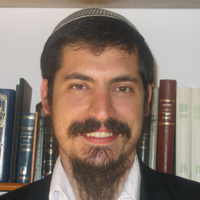Beit Midrash
- Sections
- Chemdat Yamim
- Parashat Hashavua
- Torah Portion and Tanach
- Bereshit
- Vayeshev
The Torah describes in Sefer Devarim how we are to determine when it is time to build the Beit Hamikdash. "For you have not come to this point to the menucha (rest) and the nachala (inheritance) that Hashem your G-d is giving you. You shall cross the Jordan and live in the Land that Hashem your G-d is giving to you as an inheritance, and He will give you respite from all of your surrounding enemies, and you will live in security. And to the place that Hashem your G-d will choose to have His Name dwell, you will bring everything that I am commanding you – your burnt offerings, … (Devarim 12:9-12).
When were these conditions realized? The first pasuk speaks of menucha and nachala. Nachala certainly relates to Eretz Yisrael. It is indeed impossible to build the Beit Hamikdash outside of Eretz Yisrael. But what does coming to menucha mean? From the continuation of the p’sukim, it seems that it is Hashem giving respite from all their enemies. When did this occur?
It is said about David: "And it was when the king sat in his home and Hashem gave him respite in his surrounding from all of his enemies, the king said to the prophet Natan: ‘See that I am living in a house made of cedar wood, and the ark of Hashem is located within sheets.’" (Shmuel II, 7:1-2). Apparently, at this time David thought that the conditions set out in Devarim were fulfilled. But if menucha meant that there were no wars to wage, it is difficult, as the next perek in Shmuel refers to several more battles waged.
The Rishonim deal with this and offer several possibilities, which will be discussed in our sefer, Tzofnat Shmuel. Let us offer an old-new idea.
After David set the Jews free from the dominance of the Plishtim (see Shmuel II, 5), David declared the existence of an independent Jewish state, with Yerushalayim as its political capital. In the next perek, David declared Yerushalayim as the spiritual capital of the Jewish people for all generations. For this reason, he brought the ark to the City of David. While there were still enemies around, with whom David fought later on, David already wanted to build the Beit Hamikdash.
We can learn from here that menucha means independence, not the absence of war, even if with imperfect security. That is already called giving respite from enemies. As Chanuka draws close, let us add to our prayers and thanks the prayer of Al Hanisim, while keeping in mind the great miracles that our generation has witnessed.

Ready for Audit
Rabbi Yossef Carmel | 5772

Parashat Hashavua: “See” and “Be Seen”
Rabbi Yossef Carmel | Cheshvan 5786

Parashat Hashavua: A Rare Commodity – The Right Blend of Unity and Humility
Rabbi Yossef Carmel | Tevet 5786
























